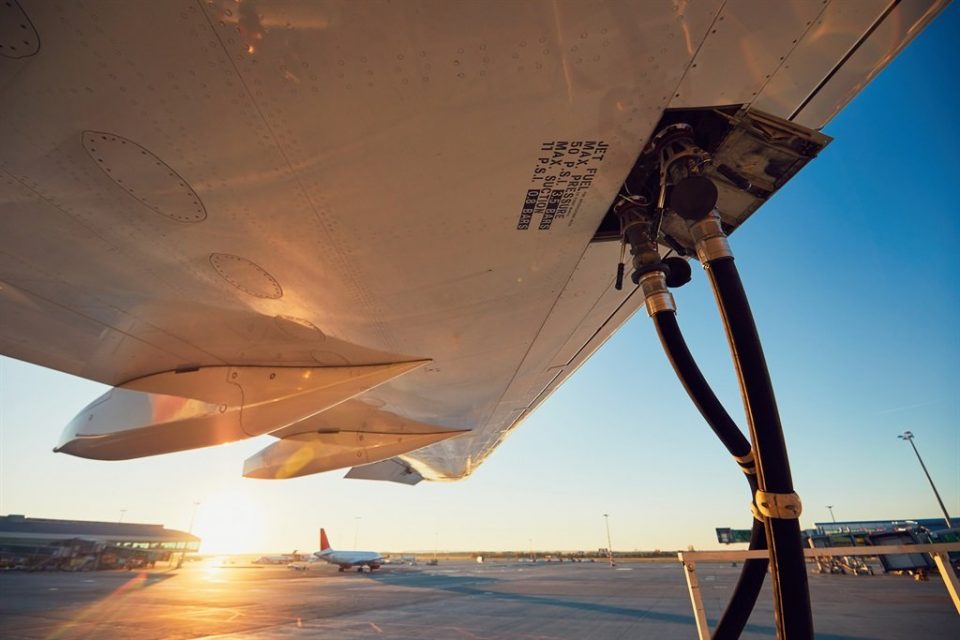
Long-haul inter-continental carriers may be unable to tanker fuel over large distances.
- The jet fuel crunch at Cape Town International Airport has had another setback due to a further delay in the arrival of a shipment, after airlines were initially only asked to reduce fuel intake there.
- The latest estimate is that the jet fuel situation in Cape Town will only be back to normal again by 3 October.
- The Airlines Association of Southern Africa has voiced fears over the rationing of jet fuel in Cape Town, saying it places additional cost burdens on airlines and could ultimately disrupt schedules and lead to cancelled flights.
- Get the biggest business stories emailed to you every weekday, or go to the News24 Business front page.
Rough seas are further delaying the arrival of a shipment of jet fuel, worsening the supply crunch at Cape Town International Airport and raising fears of disruptions and possibly cancelled flights.
News24 Business reported on Monday that Cape Town International only had enough jet fuel stock to last between four to six days after bad weather caused a supply shipment, which was due to arrive in the local harbour last Sunday, to be delayed.
This shipment was scheduled to arrive at the end of the week. The initial estimate was that supplies would stabilise by 2 October, but according to an airline CEO whose identity is known to News24 but who requested anonymity, the latest estimate for normalisation is likely only by 3 October.
Airports Company SA (ACSA) confirmed on Tuesday evening that, unfortunately, adverse sea conditions continue and could delay the vessel with jet fuel by an additional day.
In the meantime, fuel suppliers have delivered an additional 2 million litres of jet fuel to the airport this week in a bid to alleviate pressure on supplies.
Since ACSA issued the Notice to Airmen (NOTAM) last week, airlines and fuel suppliers have been engaging to determine the necessary reductions in jet fuel and to reduce intake, while ensuring continuity of operations.
According to ACSA, the airport currently continues to operate at 4.5 days’ worth of jet fuel stock and it will continue to monitor, engage fuel suppliers and airlines and provide regular updates on the issue.
“ACSA continues to engage fuel suppliers and airlines to prevent the risk of a stock out of fuel and to prevent and minimise flight disruptions,” it said.
But the current rationing of jet fuel in Cape Town is a big cause of concern for the Airlines Association of Southern Africa (AASA), which represents most of the airlines in the Southern African Development Community (SADC) region. AASA expects the rationing of jet fuel will likely result in disruptions to airline schedules and possibly cancelled flights and says the aviation industry and the SA economy can ill afford this.
“AASA appreciates the efforts being made by ACSA to manage fuel stocks at the Cape Town International airport. However, the escalation of jet fuel rations throws into sharp focus South Africa’s vulnerability because of its reliance on imported jet fuel,” AASA said in a statement on Tuesday evening.
It calls on government and fuel suppliers to urgently put in place “a far more robust resilience plan” to ensure sufficient stocks of aviation fuel are always available for airlines.
AASA points out that, although local and regional short-haul airlines are able to tanker fuel – that is, carry more fuel than optimally required for a single flight – to maintain their schedules, in doing so they must incur additional costs. This is because the extra fuel load increases the overall weight of the plane, in turn burning more fuel just to carry the extra contingency supply. More maintenance is also required as the engines and many other components in the aircraft are working harder.
“This puts further cost pressures on airlines at a time when they are already struggling with a more than 100% rise in the price of jet fuel, higher finance charges and interest rates, as well as increased labour and other costs,” states AASA.
Furthermore, long-haul inter-continental carriers may be unable to tanker fuel over large distances. According to AASA, those airlines may have to resort to intermediate en-route refuelling stops, or fly to Johannesburg or Durban to fill up before starting their long north and east-bound return flights.
“In such instances we urge government to waive the additional on-route air navigation and airport fees airlines will incur in order to comply with the fuel rations at Cape Town and continue to provide the inter-continental connectivity that local airlines and the entire region’s economy depends on,” says AASA.
From March to May this year there was a jet fuel crunch at OR Tambo International Airport in Johannesburg after floods in KwaZulu-Natal damaged railways and fuel infrastructure. It forced some international airlines to divert flights to Durban and Windhoek to refuel on their return journeys.


